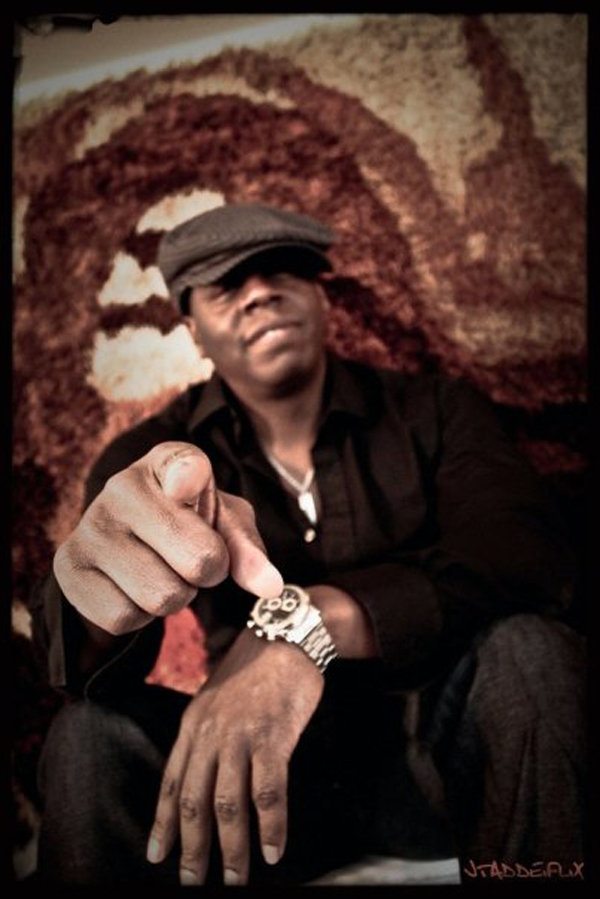
[Photo by Jonene Taddei]
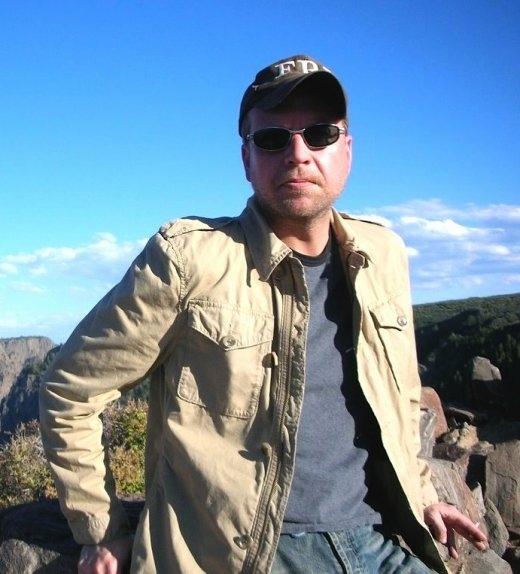 BY JONATHAN VALANIA Deep inside Norwegian mass murderer Anders Breivik’s 1,400 page ‘manifesto’, “2083: A European Declaration of Independence,” in between all the raging Islamophobia, pathological nativism, and bomb-making instructions, the man who killed 77 innocent, unarmed people in cold blood, warns readers of the negative effect that gangsta rap lyrics have on society. In section 2.67 of the PDF version, Breivik includes a slightly bastardized version of John P McWhorter’s 2003 anti-rap diatribe How Hip-Hop Holds Blacks Back, which singles out a few of the most sensational lines from West Philly native Schooly D’s proto-gangsta rap “PSK What Does It Mean?” to illustrate the toxicity of hip-hop:
BY JONATHAN VALANIA Deep inside Norwegian mass murderer Anders Breivik’s 1,400 page ‘manifesto’, “2083: A European Declaration of Independence,” in between all the raging Islamophobia, pathological nativism, and bomb-making instructions, the man who killed 77 innocent, unarmed people in cold blood, warns readers of the negative effect that gangsta rap lyrics have on society. In section 2.67 of the PDF version, Breivik includes a slightly bastardized version of John P McWhorter’s 2003 anti-rap diatribe How Hip-Hop Holds Blacks Back, which singles out a few of the most sensational lines from West Philly native Schooly D’s proto-gangsta rap “PSK What Does It Mean?” to illustrate the toxicity of hip-hop:
Copped my pistols, jumped into the ride
Got at the bar, copped some flack
Copped some cheeba-cheeba, it wasn’t wack
Got to the place, and who did I see
A sucker-ass nigga tryin to sound like me
Put my pistol up against his head
I said, “Sucker-ass nigga, I should shoot you dead”
What is not included are the lines that come after, where Schooly decides to put down the gun and pick up the microphone:
A thought ran across my educated mind
Said, man, Schoolly D ain’t doin no time
Grabbed the microphone and I started to talk
Sucker-ass nigga, man, he started to walk
Which Schooly tried to point out in rambling interviews with the City Paper and NBC PHILADLEPHIA. Yesterday, I got him on the horn and asked him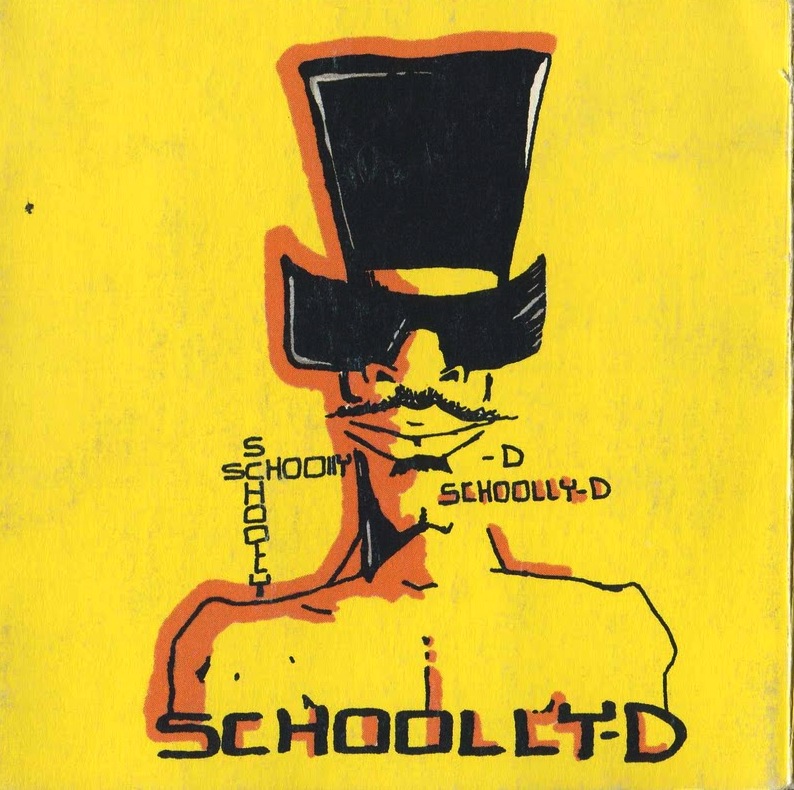 about inventing gangsta rap, getting sued by Led Zeppelin, writing the theme song for Aqua Teen Hunger Force and, yes, what it feels like to be unwillingly name-checked in the manifesto of one of the most notorious mass murderers in modern memory. I came away with the distinct impression that, 35 years ago, if you had told Schoolly that all of this was going to happen one day, he would have laughed you out of the room. And who could blame him?
about inventing gangsta rap, getting sued by Led Zeppelin, writing the theme song for Aqua Teen Hunger Force and, yes, what it feels like to be unwillingly name-checked in the manifesto of one of the most notorious mass murderers in modern memory. I came away with the distinct impression that, 35 years ago, if you had told Schoolly that all of this was going to happen one day, he would have laughed you out of the room. And who could blame him?
PHAWKER: Lets start at the very beginning. Your real name is Jesse B. Weaver. How did you get the name Schoolly D?
SCHOOLLY D: I came up with the name Schoolly D because Jesse B. wasn’t gonna cut it. At the time, all the rappers had names like Gary G or Ronnie O and I just didn’t think Jesse B was anything funny, it wasn’t anything good. So I came up with Schoolly D because that’s what we used to do on the basketball court — I was schooling motherfuckers. So I came up with the name Schoolly D. All my friends hated it, they were like, “Who the hell’s gonna call you Schoolly D?” But now, you know, now kids love saying Schoolly D.
PHAWKER: For what it’s worth, I think it’s a cool rap name. You should stick with it. You grew up in West Philly?
SCHOOLLY D: Yeah, West Philly and Atlanta, Georgia.
PHAWKER: Where in West Philly?
SCHOOLLY D: Right where the Mann Music center is.
PHAWKER: Some more ancient history here: you were sued by Led Zeppelin for using parts of “Kashmir” for “Signifying Rapper”?
SCHOOLLY D: Yes.
PHAWKER: Is it a sample of the song, or did somebody else play the song?
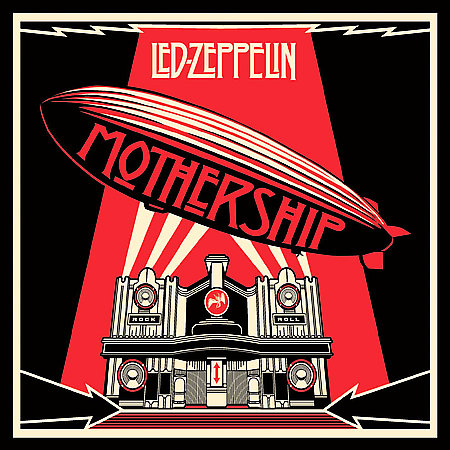 SCHOOLLY D: My manager was playing the song. We were about to go on tour, we were opening for Fishbone. So my band was in [the rehearsal space] practicing and playing that song, and I walked in and I took my coat off and started rapping what would become “Signifying Rapper.” It was based on “Signifying Monkey,” which is an old blues tale about a signifying monkey throwing shit at people sitting in a tree. So what I did was, instead of saying signifying monkey, I said signifying rapper. Instead of sitting in a tree, I’m sitting on top of a ghetto throwing shit at people.
SCHOOLLY D: My manager was playing the song. We were about to go on tour, we were opening for Fishbone. So my band was in [the rehearsal space] practicing and playing that song, and I walked in and I took my coat off and started rapping what would become “Signifying Rapper.” It was based on “Signifying Monkey,” which is an old blues tale about a signifying monkey throwing shit at people sitting in a tree. So what I did was, instead of saying signifying monkey, I said signifying rapper. Instead of sitting in a tree, I’m sitting on top of a ghetto throwing shit at people.
PHAWKER: Just to clarify, on the recording, is that Led Zeppelin or is that somebody else playing “Kashmir”?
SCHOOLLY D: That’s my band playing “Kashmir.”
PHAWKER: How much would it have cost to use the music? Was there ever a figure?
SCHOOLLY D: My publishing company, they were kids. They never even cleared it. They never even asked. It was the early 80s and people just didn’t clear music back then for some reason. So it cost us a lot of money. They wanted $80 million dollars.
PHAWKER: They wanted 80 million?!?
SCHOOLLY D: You know what? I can’t even say that because part of my deal was that I can’t talk about the money. I got off light, but I had to pay my way out of it.
PHAWKER: Like Led Zeppelin needs any more money. I think they could have just let you have it. Black people have been very good to Led Zeppelin.
SCHOOLLY D: Well the thing they were objecting to was [that it was used as the soundtrack for] the rape scene in The Bad Lieutenant.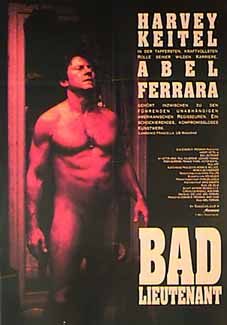
PHAWKER: So it get pulled from the movie?
SCHOOLLY D: Yeah.
PHAWKER: You are credited as the Godfather of gangster rap. Do you think that’s accurate? Are you the Original Gangster?
SCHOOLLY D: Let me put it this way: that’s motherfuckin’ accurate. That is accurate, yes it is. It’s a blessing to me that after all these years, people are starting to recognize the history. It’s a real history and it’s a rich history. Cats didn’t know how to treat hip-hop or rap as an iconic music, and after 35 years, people are really starting to get into like, “Where did this come from?” and the history of it all.
PHAWKER: The song that started it all off was “P.S.K.” which stands for Parkside Killa Kings. Tell me who they were. A gang that was around when you were coming up?
SCHOOLLY D: There were always gangs in Philadelphia. This was when things started to change from street gangs to drug gangs. Everybody was starting to get mixed up in drug money.
PHAWKER: The name was just made up or was it a real gang?
SCHOOLLY D: It was a real gang. Because of the invention of crack, they started to work with other gangs and they all got along because everybody wanted to make some money. But that kind of cooperation didn’t last long.
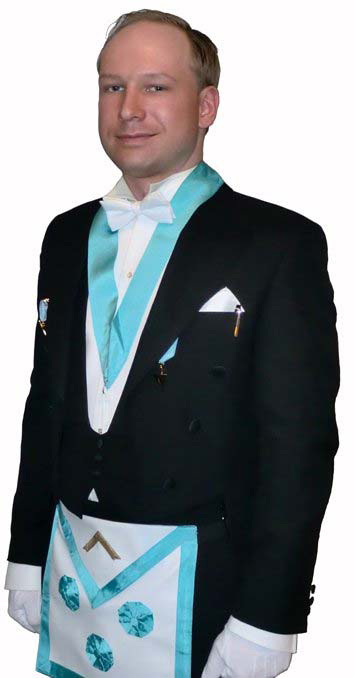 PHAWKER: Anders Behring Breivik, the Norwegian maniac who massacred 93 unarmed people — mostly kids — last month, released a long rambling manifesto explaining his reasons for committing mass murder. Included in there was this essay by a guy named John P. McWhorter, basically taking you, and rap in general, to task for ruining black people with your music. I wanted to give you a chance to respond to that. What are your thoughts about somehow being tangentially connected to this horrible, horrible crime?
PHAWKER: Anders Behring Breivik, the Norwegian maniac who massacred 93 unarmed people — mostly kids — last month, released a long rambling manifesto explaining his reasons for committing mass murder. Included in there was this essay by a guy named John P. McWhorter, basically taking you, and rap in general, to task for ruining black people with your music. I wanted to give you a chance to respond to that. What are your thoughts about somehow being tangentially connected to this horrible, horrible crime?
SCHOOLLY D: Given a few weeks of thinking—or not thinking—about it, this is just the history of people. Some people just push you, and they just don’t want to say, “Ok, I’m doing this because I’m evil” and that is why I’m doing this thing. Because of how I grew up, I really don’t pay attention to these kind of excuses because either you want to kill people or you don’t. That’s Earth. That’s being human. Either you want to do it or you don’t. Blaming me or anybody else for setting you off? He could have called me and we could have talked it out. I’m not being facetious or trying to make light of it, but you know what, there’s some things I don’t want to be involved in but you can’t stop people from using twisting your words around and using them to justify the evil that they do. I’ve had so much of it in my career and my life that it doesn’t phase me anymore, but the fact that people died phases me. Just like when people die in Philly it phases me. I don’t like that shit either.
PHAWKER: Can I give you some unsolicited public relations advice? I think the answer you should give to anybody that asks you about this is, “I’m not interested in lectures about the negative effects of rap music on society from mass murderers. Period. End of story.” Were you familiar with this essay by John P. McWhorter before all this happened? The essay that Breivik included in his manifesto, How Hip-Hop Holds Blacks , was actually written back in 2003.
SCHOOLLY D: A little, yeah.
PHAWKER: I Googled him. Best I can tell, he’s one of those black academics that gets paid by right wing think tank to tell white conservatives what they  want to hear about black people.
want to hear about black people.
SCHOOLLY D: Next year it will be 30 years since that song came out, and people have been saying that kind of stuff all along to the point where it’s numbing, it no longer bothers me, but when kids die in Norway, just like when kids die in New York, or North Philly, that bothers me, but people talking shit about me or that song doesn’t bother me.
PHAWKER: On a lighter note, how did you get involved with Aqua Teen Hunger Force? Who asked you to do the theme song?
SCHOOLLY D: I was one of the first people to be interviewed on Space Ghost Coast to Coast, me and Weird Al Yankovic, and I think I mentioned I would love to write a theme song for Scooby Doo or Hong Kong Phooey because I grew up in the 70s. Next thing I know [the Aqua Teen Hunger Force producers] called me up, sent me some sketches, and we got to talking and they asked me to write the theme song. It was always one of my dreams to write a theme song for a cartoon.
